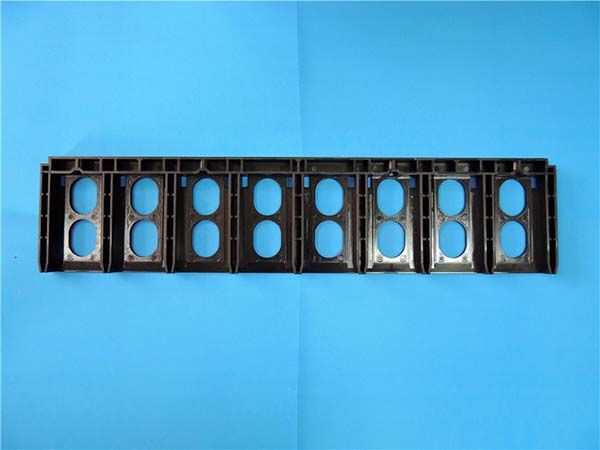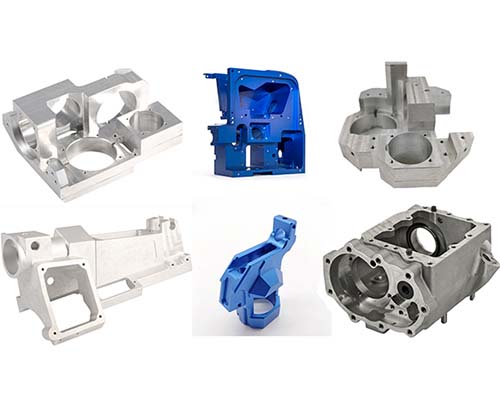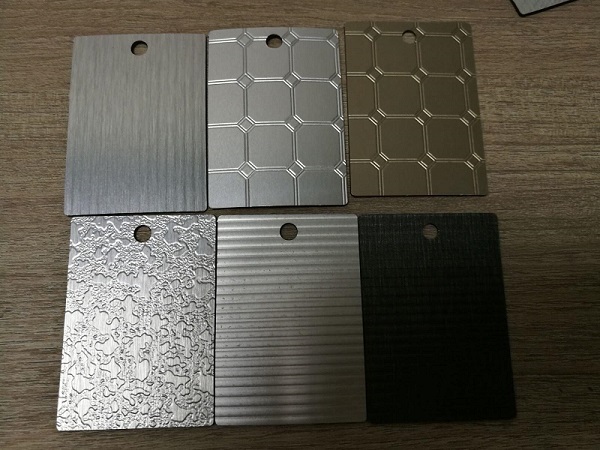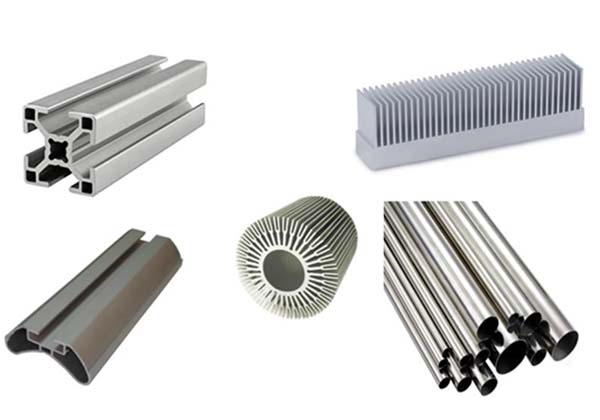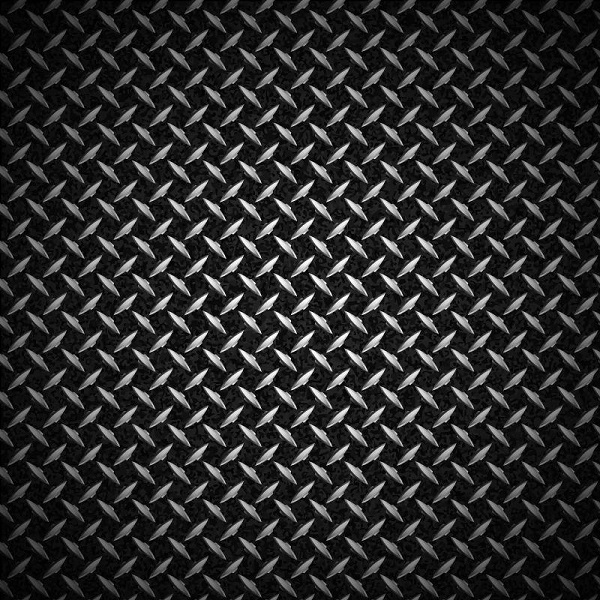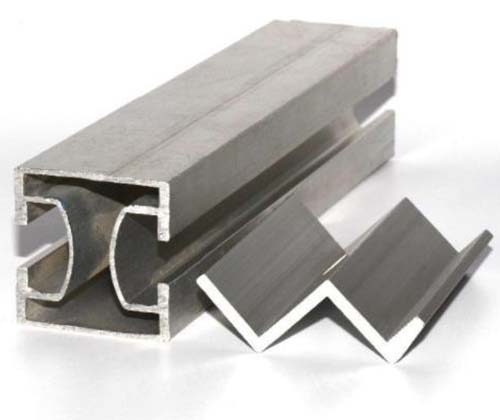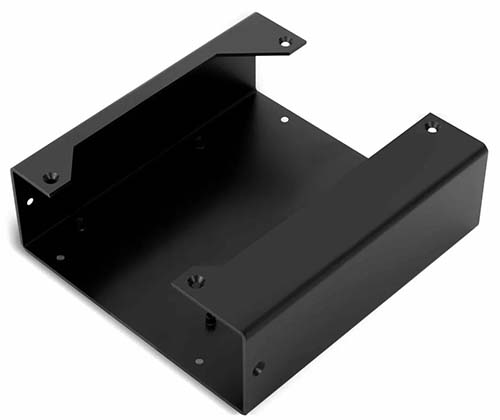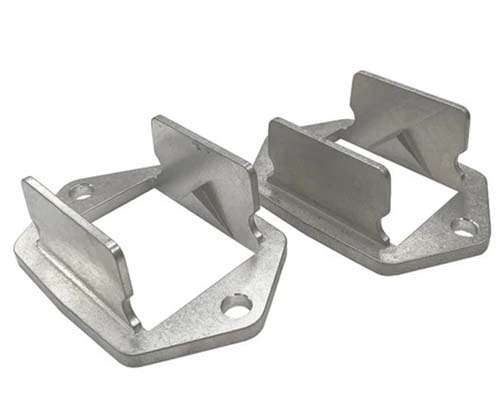Understanding Your Sheet Metal Needs
Before you start searching for a "sheet metal shop near me", it's crucial to have a clear understanding of your specific requirements. Different projects demand different specifications, and being precise about these details can help you find the most suitable sheet metal shop for the job.
Type of Metal: There is a wide variety of metals used in sheet metal work, each with its own unique properties. Steel is one of the most common choices due to its high strength and relatively low cost. It comes in different grades, such as mild steel, which is easy to work with and suitable for general - purpose applications like enclosures and brackets; and stainless steel, known for its corrosion - resistance, making it ideal for applications in harsh environments, like food processing equipment or marine components. Aluminum is another popular option. It is lightweight, has good thermal conductivity, and is corrosion - resistant. This makes it great for applications in the aerospace industry, automotive parts, and heat sinks. Copper is highly conductive and malleable, often used in electrical components and decorative items.
Thickness: The thickness of the sheet metal, also known as gauge, is a critical factor. Thicker sheets offer more strength and durability but are also more difficult to work with. For example, a 16 - gauge steel sheet (about 1.5 mm thick) might be used for heavy - duty industrial equipment, while a 24 - gauge steel sheet (around 0.6 mm thick) could be suitable for lighter - duty applications like small electronic enclosures. Incorrect thickness can lead to structural failures if the sheet is too thin for the application or unnecessary cost and difficulty in processing if it's too thick.
Precision Requirements: If your project demands high - precision components, you need to find a sheet metal shop with advanced equipment and skilled workers. Precision is often measured in terms of tolerances. For example, in the production of parts for the medical or aerospace industries, tolerances as tight as ±0.001 inches may be required. This level of precision ensures that the parts fit together perfectly and function as intended. A shop that can't meet these tight tolerances may produce parts that are either too large or too small, resulting in assembly issues or malfunctioning products.
Order Quantity: The quantity of parts you need can also influence your choice of a sheet metal shop. A small - scale job shop may be more flexible and cost - effective for low - volume orders, perhaps up to a few hundred pieces. They can often provide personalized service and quick turnaround times. However, for high - volume orders in the thousands or more, a larger, more automated sheet metal shop may be better equipped. These larger facilities can take advantage of economies of scale, reducing the per - unit cost, and have the production capacity to handle large orders in a timely manner.
Key Factors to Consider When Choosing a Sheet Metal Shop
Reputation and Experience
A sheet metal shop's reputation is a reflection of its past performance and customer satisfaction. You can start by checking online reviews on platforms like Google Reviews, Yelp, or industry - specific forums. For example, if a shop has an average rating of 4.5 out of 5 stars with numerous positive reviews highlighting their quality work, timeliness, and customer service, it's a good sign. Customer testimonials and case studies on their website can also provide insights into the types of projects they've successfully completed. A shop that has been in business for a long time, say 10 - 15 years or more, has likely encountered and overcome various challenges, which means they have the experience to handle different sheet metal jobs.
Services Offered
Sheet metal shops offer a range of services. Cutting is a fundamental service, and the methods can vary from traditional shearing to more precise laser cutting. Laser cutting can achieve very fine tolerances, making it suitable for intricate designs. Bending is another key service. A shop should be able to bend sheet metal accurately to the required angles, whether it's for creating enclosures or structural components. Stamping and forming are used to create specific shapes in large quantities, often with the help of custom - made dies. Welding is necessary when joining multiple sheet metal parts together. Different welding techniques like MIG (Metal Inert Gas) and TIG (Tungsten Inert Gas) welding are used depending on the metal type and the application. When choosing a shop, list out the services you need for your project. If you're creating a complex piece of machinery that requires precision cutting, bending, and high - quality welding, make sure the shop can provide all these services.
Quality of Materials and Workmanship
The quality of materials directly impacts the durability and performance of the final product. Reputable sheet metal shops source their materials from reliable suppliers. For instance, they might use steel from well - known mills like ArcelorMittal, which is recognized for its high - quality steel products. The shop should also be able to provide certifications for the materials, such as ISO 9001 for quality management systems. Workmanship is equally important. Skilled workers with proper training and certifications, like Certified Welder (CW) or Certified Welding Inspector (CWI), are more likely to produce high - quality work. You can ask the shop about the training and experience of their staff to gauge the quality of their workmanship.
Pricing and Turnaround Time
Pricing is an important factor, but it shouldn't be the only one. Different shops may have varying price structures. Some may charge by the hour, while others may provide a fixed quote based on the complexity of the project. For example, Shop A might offer a lower price for a simple sheet metal enclosure but have a longer turnaround time of 10 - 15 business days, while Shop B charges slightly more but can deliver in 5 - 7 business days. Consider your budget, but also factor in how quickly you need the project completed. If you're on a tight deadline for a product launch, paying a bit more for faster service from Shop B might be the better option. Analyze the quotes you receive carefully, ensuring that all aspects of the project are covered in the price, and there are no hidden fees.
Comparing Sheet Metal Shops Near You
To make your decision - making process easier, here is a comparison of three hypothetical sheet metal shops near you based on the factors mentioned above:
| Sheet Metal Shop | Reputation (Rating out of 5) | Services Offered | Quality of Materials | Price Range (for a Standard 10 - piece Enclosure) | Delivery Time |
| Shop A | 4.2 | Cutting (Shearing and Laser), Bending, Welding (MIG only) | Sourced from local suppliers, no certifications provided | \(500 - \)700 | 10 - 15 business days |
| Shop B | 4.8 | Cutting (Laser only), Bending, Stamping, Welding (MIG and TIG), Forming | Sourced from well - known mills like ArcelorMittal, ISO 9001 certified | \(700 - \)900 | 5 - 7 business days |
| Shop C | 3.5 | Cutting (Shearing only), Bending, Welding (MIG) | Sourced from unknown suppliers | \(400 - \)600 | 15 - 20 business days |
As you can see, Shop B has a high reputation, offers a wide range of services, and uses high - quality materials, but it comes at a relatively higher price. Shop A is more affordable but has a more limited service range and less - reliable material sourcing. Shop C is the cheapest but has the lowest reputation and the longest delivery time. Your choice should depend on your specific project requirements. If you need high - precision work with high - quality materials and are on a tight schedule, Shop B might be the best choice. However, if you're on a strict budget and the project is less complex, Shop A could be suitable. And if cost is the absolute priority and you can wait longer, Shop C might be considered.
Yigu Technology's Perspective
As a non - standard plastic metal products custom supplier, Yigu Technology understands the significance of finding a reliable sheet metal shop. Effective communication is the cornerstone of a successful partnership. From the initial discussion of project requirements to the final delivery, clear and consistent communication ensures that every detail is understood correctly.
Customization is another crucial aspect. Yigu Technology emphasizes the importance of a sheet metal shop's ability to offer tailored solutions. Each project is unique, and the shop should be able to adapt its processes to meet specific needs, whether it's a special design, material combination, or tight tolerance requirement.
Building long - term relationships is also valued. A reliable sheet metal shop doesn't just complete one - time orders but is committed to providing continuous support. This includes after - sales service, handling any issues promptly, and being a reliable partner for future projects. By focusing on these elements, Yigu Technology believes that customers can find a sheet metal shop that not only meets their current needs but also grows with their business in the long run.
FAQ
Q1: How can I be sure the sheet metal shop uses high - quality materials?
To ensure the sheet metal shop uses high - quality materials, you can take several steps. First, ask the shop to provide material certificates. Reputable suppliers usually offer certificates like mill test reports that verify the material's composition, mechanical properties, and compliance with industry standards. For example, if you're using stainless steel, the certificate should detail the grade (e.g., 304 or 316) and its chemical makeup. Second, request samples of the materials they intend to use. You can then have these samples tested independently for quality, strength, and corrosion - resistance. Third, research the shop's reputation. If they have a history of using high - quality materials and producing durable products, it's more likely they will continue to do so for your project.
Q2: What if I have a small - scale sheet metal project? Will the shop still accept it?
The response of a sheet metal shop to a small - scale project can vary. Some shops are more than willing to take on small jobs as they value customer relationships and the potential for future business. However, they may charge a slightly higher per - unit cost compared to large - scale projects due to the relatively higher setup costs involved. For instance, if setting up a machine for a particular cutting or bending operation takes a certain amount of time and resources, spreading these costs over a smaller number of parts will increase the cost per part. On the other hand, some larger, high - volume production shops may have a minimum order quantity requirement. They may not be interested in small - scale projects as it may not be cost - effective for them to allocate their resources to such jobs. So, it's essential to contact the shop directly and discuss your project size to understand their stance.
Q3: How do I handle disputes if there are issues with the final sheet metal products?
If there are issues with the final sheet metal products, the first step is to review the contract you signed with the shop. The contract should clearly define the quality standards, delivery time, and any warranties or guarantees. Check if the shop has breached any of these terms. Next, communicate with the shop immediately. Explain the issues you've encountered in detail, providing photos or measurements if applicable. Most disputes can be resolved through open and honest communication, and the shop may offer solutions such as reworking the products, providing replacements, or offering a partial refund. If the communication doesn't lead to a satisfactory resolution, you can consider involving a third - party mediator or arbitration service. These neutral parties can review the situation objectively and help reach a fair settlement. In extreme cases, if all else fails, legal action may be an option, but this should be a last resort due to the time and cost involved.
